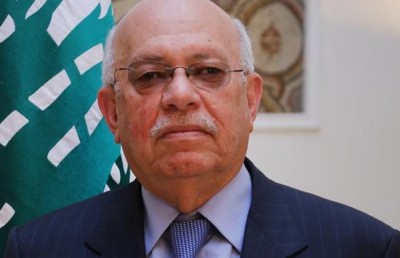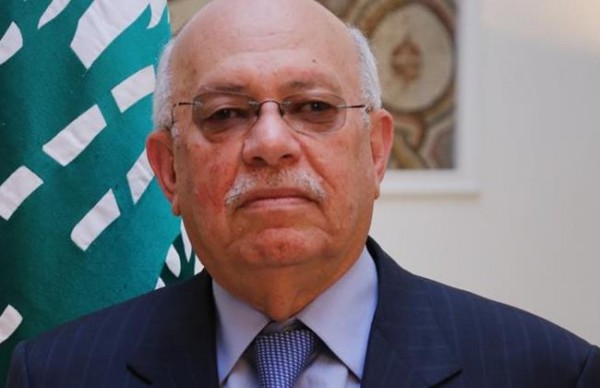 Social Affairs Minister Rashid Derbas has said the new regulations to impose visa restrictions on Syrians are aimed at seriously regulating the entry of Syrians into Lebanon and define for the first time the purpose of their visit
Social Affairs Minister Rashid Derbas has said the new regulations to impose visa restrictions on Syrians are aimed at seriously regulating the entry of Syrians into Lebanon and define for the first time the purpose of their visit
The authorities are compelled to “regulate the entry and exit of Syrians as part of the implementation of the new security strategy,” Derbas told the Asharq al-Awsat newspaper in remarks published on Sunday.
Derbas confirmed that the rules were a first.
“This is the first time in the history of the two countries that Syrians have been required to define the purpose of their visit,” he said
The minister said the state has not blocked any border crossing or expelled any Syrian refugee.
A security source declined to describe to AFP the new requirements as visas, but acknowledged they were unprecedented.
“This is the first time these kinds of instructions have been given,” he said.
“The goal is to bring the security and economic situation under control and to monitor the presence of Syrians on Lebanese soil.”
“The goal is to prevent (Syrians) from taking refuge” in Lebanon, and “to more seriously regulate the entry of Syrians”, he added.
He said the visas would be available at the border, but that Syrians already in Lebanon and registered with the UN refugee agency UNHCR would not be required to apply.
The many thousands of Syrians in the country who are not registered with the UN, among them wealthy individuals who have not sought aid, will have to apply for visas when their current residencies expire, Derbas said.
UNHCR spokesman Ron Redmond said he regretted that the new measures included “no explicit provision for exceptional humanitarian entry”.
“The Ministry of Social Affairs has given indications, however, that vulnerable persons in immediate need of international protection will be admitted on a case-by-case basis after review,” he told AFP.
Redmond added that the UN’s refugee agency had recorded a more than 50 percent drop in the number of Syrians refugees registering in Lebanon since the summer.
But aid groups have long warned that Lebanon, with a population of just four million people, has been overwhelmed by the Syrian influx.
The General Security department said in a statement earlier this week that Syrians could apply for six types of entry visas, including tourist, business, student, transit, short stay and medical.
Tourist visas require applicants to provide evidence of a hotel reservation and $1,000, as well as a valid passport or ID card.
Visas are also available for those who own property in Lebanon or are seeking to enter to apply for visas at foreign embassies in Beirut.
More than 200,000 people have been killed in Syria’s conflict, which began in March 2011 and has displaced around half the country’s population.
Syria’s ambassador to Lebanon Ali Abdul Karim Ali called on Saturday for coordination of the visa issue with Lebanese authorities.
Ali said Damascus understands the new measures but that “the issue of Syrians entering and leaving needs coordination and integration between the concerned parties in the two countries.”
The new visa regulations come into effect on Monday.
This is the first time that Lebanon has required Syrians to apply for visas. Citizens of both countries have been able to travel freely across their shared border since Lebanon gained independence in 1943.
For Lebanon, the flood of refugees escaping the civil war in their country, has placed a tremendous strain on the country’s economy, resources, infrastructure and delicate sectarian balance.
No one really knows how many displaced Syrians are in Lebanon . Estimates range anywhere between 1.2 to 2 million in a country of about 4.5 million. Many villages and towns have more Syrians than Lebanese. In addition to the refugees , hundreds of thousands of Syrian manual workers who work in construction and agriculture brought their families with them to escape the violence in their country.
Lebanon began imposing tighter restrictions in October when the government announced that it will not accept any more Syrian refugees except for what it deemed to be “exceptional” cases.
Since then, the number of refugee registrations in Lebanon has considerably dropped.


Leave a Reply
You must be logged in to post a comment.